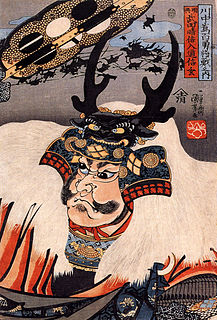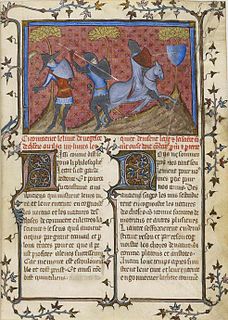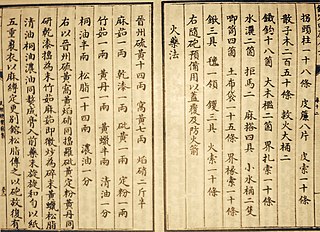 W
WThe Bear Went Over the Mountain: Soviet Combat Tactics in Afghanistan is a 1996 non-fiction book translated and edited by American military scholar and author Lester W. Grau. The book is translated from a study initially published by the Frunze Military Academy in 1991 titled "Combat Actions of Soviet Forces in the Republic of Afghanistan" and subtitled "A Thematic Collection of Tactical Examples." Grau received the original Russian language text from the Department of the History of the Military Art at the Frunze academy. With their permission he translated, included commentary, and published his results as this book.
 W
WDe re militari, also Epitoma rei militaris, is a treatise by the Late Latin writer Publius Flavius Vegetius Renatus about Roman warfare and military principles as a presentation of the methods and practices in use during the height of the Roman Empire and responsible for its power. The extant text dates to the 5th century.
 W
WThe Defence of Duffer's Drift is a short 1904 book by Ernest Dunlop Swinton. It purports to be a series of six dreams by "Lieutenant Backsight Forethought" about the defence of a river crossing in the Boer War. The infantry tactics in the early dreams are disastrous, but each time BF learns something until in the final defence he is successful.
 W
WThe Dream Pool Essays or Dream Torrent Essays was an extensive book written by the Chinese polymath and statesman Shen Kuo (1031–1095) by AD 1088, during the Song dynasty (960–1279) of China. Although Shen was previously a highly renowned government official and military general, he compiled this enormous written work while virtually isolated on his lavish garden estate near modern-day Zhenjiang, Jiangsu province. He named the book after the name he gave to his estate, the "Dream Brook". The literal translated meaning is Brush Talks from a Dream Brook, and Shen Kuo is quoted as saying:Because I had only my writing brush and ink slab to converse with, I call it Brush Talks.
 W
WThe General's Garden, also known as the Book of the Heart or the New Book, is an ancient Chinese military treatise attributed to the famous Three Kingdoms period military strategist Zhuge Liang (181–234).
 W
WThe Huolongjing, also known as Huoqitu, is a 14th-century military treatise compiled and edited by Jiao Yu and Liu Bowen of the early Ming dynasty (1368–1683). The Huolongjing is primarily based on the text known as Huolong Shenqi Tufa, which is no longer extant.
 W
WInfantry Attacks is a classic book on military tactics written by Erwin Rommel about his experiences in World War I. At the time of the book's writing in the mid-1930s, Rommel's rank was lieutenant colonel. Rommel had planned to write a successor called Panzer greift an about tank warfare, and gathered much material during the North Africa Campaign. However, he was forced to commit suicide before completing this work.
 W
WThe Kōyō Gunkan (甲陽軍鑑) is a record of the military exploits of the Takeda family, compiled largely by the Takeda vassal Kōsaka Danjō Masanobu, and completed in 1616 by Obata Kagenori. It provides some of the most detailed descriptions and statistics of warfare in the Sengoku period available today. The term Bushidō was first used in Kōyō Gunkan.
 W
WThe Life of Castruccio Castracani is a short work by Niccolò Machiavelli. It is made in the form of a short biographical account of the life of the medieval Tuscan condottiere, Castruccio Castracani, who lived in and ruled Lucca.
 W
WOn Thermonuclear War is a book by Herman Kahn, a military strategist at the RAND Corporation, although it was written only a year before he left RAND to form the Hudson Institute. It is a controversial treatise on the nature and theory of war in the thermonuclear weapon age. In it, Kahn addresses the strategic doctrines of nuclear war and its effect on the international balance of power.
 W
WVom Kriege is a book on war and military strategy by Prussian general Carl von Clausewitz (1780–1831), written mostly after the Napoleonic wars, between 1816 and 1830, and published posthumously by his wife Marie von Brühl in 1832. It has been translated into English several times as On War. On War is an unfinished work. Clausewitz had set about revising his accumulated manuscripts in 1827, but did not live to finish the task. His wife edited his collected works and published them between 1832 and 1835.
 W
WThe Other Side of the Mountain: Mujahadeen Tactics in the Soviet-Afghan War is a 1998 non-fiction book written by former Afghan Army Colonel Ali Ahmad Jalali and American military scholar Lester W. Grau.
 W
WThe Prince is a 16th-century political treatise written by the Italian diplomat and political theorist Niccolò Machiavelli as an instruction guide for new princes and royals. The general theme of The Prince is of accepting that the aims of princes – such as glory and survival – can justify the use of immoral means to achieve those ends.
 W
WThe Small Wars Manual is a United States Marine Corps manual on tactics and strategies for engaging in certain types of military operations.
 W
WStrategemata, or Stratagems, is a work by the Roman author Frontinus. It is a collection of examples of military stratagems from Greek and Roman history, ostensibly for the use of generals. Frontinus is assumed to have written Strategemata towards the end of the first century AD, possibly in connection with a lost work on military theory.
 W
WSun Bin's Art of War is an ancient Chinese classic work on military strategy written by Sun Bin, a supposed descendant of Sun Tzu who served as a military strategist in the Qi state during the Warring States period. According to historical records from the Han Dynasty, Sun Bin's Art of War contained an extensive 89 chapters, with four volumes of pictures attached, but was lost by the end of the Eastern Han Dynasty. As a result, Sun Bin's Art of War is sometimes confused with Sun Tzu's The Art of War.
 W
WTargeted Killing in International Law is a book about the legality of targeted killing, written by Nils Melzer. It was first published by Oxford University Press in May 2008. The book explores the history of targeted killing as a government strategy by multiple countries including the United States, the United Kingdom, Israel, Switzerland and Germany; for both military and law enforcement purposes. Melzer argues that directly after the September 11 attacks in the United States, perceptions of the tactic became more positive.
 W
WTargeted Killings: Law and Morality in an Asymmetrical World is a non-fiction compilation book about targeted killing edited by Claire Finkelstein, Jens David Ohlin, and Andrew Altman. It was published by Oxford University Press in 2012. The book grew out of contributions by the authors to a conference in April 2011 at the University of Pennsylvania Law School. Targeted Killings features eighteen essays in five sections arranged by topic. The work argues that after the 11 September attacks by Al-Qaeda in 2001, the United States and other countries began to see the tactic of targeted killing differently. The practice of targeted killing had previously been accepted in situations of self-defence in military settings; after 11 September 2001 it was used to kill non-combatants and those not directly involved in a particular armed force.
 W
WThe Art of War is a treatise by the Italian Renaissance political philosopher and historian Niccolò Machiavelli.
 W
WUnrestricted Warfare: Two Air Force Senior Colonels on Scenarios for War and the Operational Art in an Era of Globalization is a book on military strategy written in 1999 by two colonels in the People's Liberation Army, Qiao Liang (乔良) and Wang Xiangsui (王湘穗). Its primary concern is how a nation such as China can defeat a technologically superior opponent through a variety of means. Rather than focusing on direct military confrontation, this book instead examines a variety of other means such as political warfare. Such means include using legal tools and economic means as leverage over one's opponent and circumvent the need for direct military action.
 W
WThe Utility of Force: The Art of War in the Modern World is a treatise on modern warfare written by General Sir Rupert Smith and published in 2005. Smith is a retired general who spent 40 years in the British Army; he commanded the 1st Armoured Division in the First Gulf War and served as General Officer Commanding Northern Ireland at the end of the Troubles. He was motivated to write the book by his experiences in the Balkans. He commanded the United Nations Protection Force (UNPROFOR) in Bosnia from 1995 to 1996, during which time the Srebrenica massacre occurred and the capital, Sarajevo, was under siege by Serb forces. Smith was instrumental in the lifting of the siege by arranging for NATO air strikes and an artillery barrage. This enabled a ground assault by Bosnian and Croatian forces that ended the siege and led to the Dayton Agreement. Smith's second involvement with the Balkans was in 1999 during the Kosovo War, when he was serving as NATO's Deputy Supreme Allied Commander Europe, overseeing air strikes against Serb targets.
 W
WThe War of the Sons of Light Against the Sons of Darkness, also known as War Rule, Rule of War and the War Scroll, is a manual for military organization and strategy that was discovered among the Dead Sea Scrolls. The manuscript was among the scrolls found in Qumran Cave 1, acquired by the Hebrew University of Jerusalem and first published posthumously by Eleazar Sukenik in 1955. The document is made up of various scrolls and fragments including 1QM, and 4Q491–497. It is possible that The War of the Messiah is the conclusion to this document. The 4Q491–497 fragments were published by Maurice Baillet in Discoveries in the Judaean Desert, 7 and comprise a shorter recension of the War Scroll.
 W
WA military treatise or treatise on war is any work that deals with the "art of war" in some basic aspect. Fundamentally military treatises are treatises on military strategy. Other works may also be included in the definition that, although they deal with other topics, include sensitive information about military matters. These may include, among others, description of specific battles, sieges, general campaigns, reports of military authorities, and commented works about ground or naval battles.
 W
WThe Wujing Zongyao, sometimes rendered in English as the Complete Essentials for the Military Classics, is a Chinese military compendium written from around 1040 to 1044.